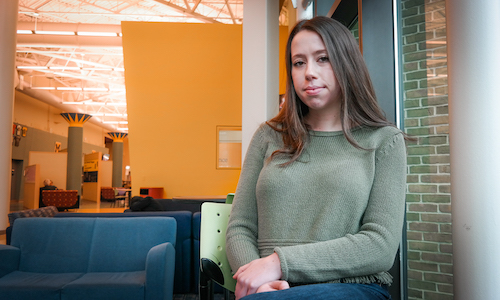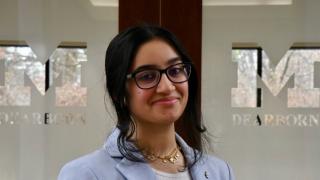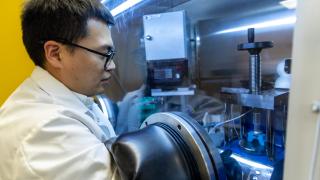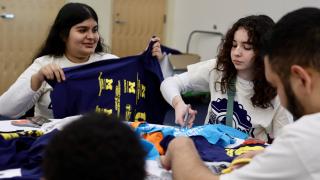When Emma Watters graduates at the end of the month, she’ll do so with something every student hopes to have in their pocket at commencement: a solid, first post-college job.
In fact, in her case, that materialized maybe a little too quickly. Last fall, when her supervisor announced her pending retirement from the community development corporation where Watters was working part time, the staff came to her with an offer to lead the youth and families program. The only catch was the job started in January, which meant she’d be juggling a full slate of classes with full-time work during her final semester.
“There have been some late nights, for sure,” Watters said wryly, implying that “some” may be an understatement. “But it was either take the job now, or someone else was going to fill the position. And I really wanted the job.”
As the Joy-Southfield Community Development Corporation’s new director of youth and family development, Watters now is fully immersed in the kind of public health work she developed a passion for at UM-Dearborn. Right now, she’s closing out another successful round of family workshops in the HEAL program (short for Healthy Eating Activity Learning), where she organizes things like cooking demos, fitness classes and diabetes health coaching. And with warmer weather around the corner, she’s turning her attention to the local farmers market and community gardens—programs that are helping residents in this under-resourced area of west Detroit get access to fresh fruits and vegetables.
Watters’ interest in health has deep roots. She said many in her own family have struggled with chronic conditions like diabetes and obesity, and because of this, she actually started college thinking about a career in medicine.
“I think I wanted to be a doctor because it seemed like the clearest way to help people,” she said. “But then, my sophomore year, I took a public health class, and I learned there are all these factors like socioeconomic status, gender and race that can determine your health. I come from a pretty low-income family, and it just made me think about things my parents have gone through in a totally different way. I remember feeling like, ‘This is my thing. Public health is what I want to do.’”
Watters didn’t look back. She confidently switched her major from biology to public health; and took every class she could with the professor who had sparked her interest in the field—Natalie Sampson—whom she “adopted as a mentor.” She threw herself into projects outside the classroom too, including work with the college food pantry; she even resurrected a dormant chapter of the Public Health Student Society. And, of course, she landed that internship—then part-time job—with Joy-Southfield, which pushed her to translate her academic experience into practice.
Watters said the insight she’s getting from that hands-on work is a big reason she feels solid about temporarily putting her goal of a master’s degree program on hold to start her career with a grassroots organization. The way she looks at it, it’s just a different form of education.
“I did struggle with the decision a little bit, but this is the kind of job that I’d want after grad school,” Watters said. “I think the other thing is that I feel rooted here. I mean, I went to Honduras last year with a campus group that does medical work. And I just kept thinking that we have some of the same problems here with access to healthy food and clean water. So why not make the change here? And I think now, given everything I’ve learned and experienced, I feel capable and empowered to do that.”





